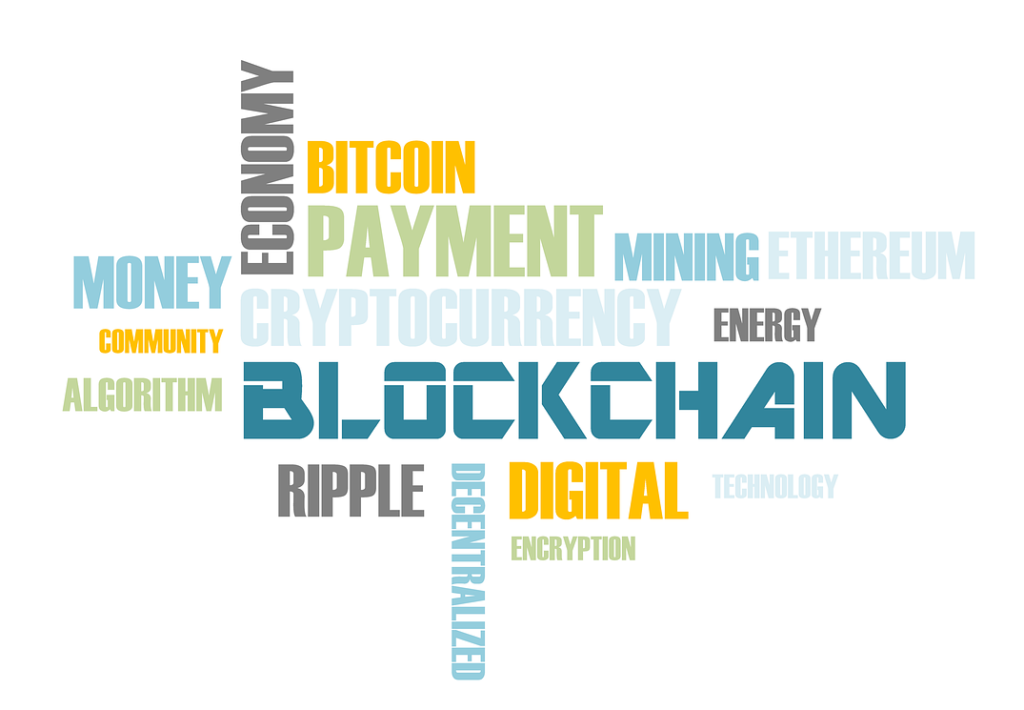What is blockchain technology?
Blockchain technology is a digital system that enables secure, transparent, and decentralized recording and verification of transactions or data. Blockchains have a crucial role in cryptocurrency systems for maintaining a secure and decentralized record of transactions. It works by creating a distributed and immutable (that can not be altered) database that is not controlled by a single individual or group.

How does blockchain technology work?
When Bitcoins were introduced in 2009, blockchain got their most popular identity in the creation of various cryptocurrencies, decentralized finance (DeFi) applications, non-fungible tokens (NFTs), and smart contracts. In a blockchain system, transactions are recorded in a block, which is then validated by a network of computers or nodes. A unique code known as a “hash” is attached to each block that connects it to the previous block, forming a chain of blocks, hence the name “blockchain.” Once a block is added to the chain, it cannot be altered or deleted without agreement or consent from the network.
How does blockchain help organizations when sharing data?

The decentralized and immutable nature of blockchain technology makes it useful for various applications, such as cryptocurrencies, supply chain management, voting systems, digital identity management, and more. Blockchain technology has the potential to benefit organizations in sharing data by offering a decentralized and secure method of storing and transmitting information.
Blockchain technology offers several benefits to organizations in sharing data, including:
- Decentralization: Blockchain technology is decentralized, which means transactions are verified by a network of nodes instead of a central authority. This makes it more secure and less vulnerable to fraud.
- Trust: The public ledger in blockchain technology provides transparency, and anyone can access and audit the transactions. This transparency enhances trust and ensures that each participant can see all transactions.
- Security: Blockchain technology uses encryption and cryptographic algorithms to secure transactions, making them immutable and irreversible. The distributed nature of the blockchain makes it secure from a single point of failure.
- Efficiency: Blockchain technology can streamline business processes by eliminating the need for intermediaries, which makes it more feasible and economical as compared to traditional transactions.
- Immutable Records: Blockchain technology creates immutable records that cannot be altered or deleted, which makes it easier to track and verify transactions at any time.
- Smart Contracts: Blockchain technology enables the creation of self-executing contracts with the terms of the agreement between the buyer and seller directly written into lines of code. Smart contracts automate the verification and execution of contracts and ensure the accuracy and transparency of the process.
Takeaway: Blockchain technology can help organizations in sharing data in a secure, transparent, and efficient manner, allowing them to streamline their operations and enhance their services.
What are multi-party systems in blockchain?
Multi-party systems in blockchain help facilitate secure and transparent interactions between multiple parties. In this system, a blockchain is used as a shared ledger that allows several parties to communicate, share and collaborate without the need for a centralized intermediary. Multi-party systems can be used for various applications, including financial transactions, supply chain management, and voting systems. In a multi-party system, each party has a copy of the blockchain, which is updated in real-time whenever a new transaction takes place. All interactions between the parties are recorded on the blockchain.
- The use of multi-party systems in blockchain offers several benefits, including enhanced transparency and security. The blockchain records all transactions, providing an auditable trail that can be used to verify the integrity of the interactions. Additionally, because the blockchain is immutable, it is almost impossible for any party to alter the data on the blockchain without detection.
- Another advantage of multi-party systems is that they can streamline complex interactions between multiple parties. As in supply chain management, the blockchain can be used to track the movement of goods between multiple parties such as manufacturers, distributors, and retailers. This can help to reduce the time and cost involved in managing the supply chain, as well as improve the accuracy and transparency of the process.
Read More: What is Blockchain?
What is the future of Blockchain?
The future of blockchain technology appears promising many experts predict that this technology will continue to expand into various industries. You can think of some potential trends for the future of blockchain as follows:
- Increased Adoption: Blockchain technology is becoming prominent now, and you can expect to see increased adoption across various industries. Industries that rely on secure and transparent data sharing, such as finance, supply chain management, and healthcare can go well with blockchain technology.
- Interoperability: As more and more organizations are adopting blockchain technology, there is a growing need for interoperability between different blockchain networks. This may help organizations to share data and collaborate across different blockchain networks easily and with reduced cost.
- Scalability: It is one of the most important issues related to blockchain technology. As more transactions occur on the blockchain, the network can become slow and congested. However, many blockchain projects are working on solutions to improve scalability.
- Decentralized Finance (DeFi): DeFi refers to a new financial system built on top of blockchain technology. DeFi projects are expected to provide more accessible, transparent, and secure financial services, such as lending, borrowing, and trading, without the need for traditional financial institutions.
- Non-Fungible Tokens (NFTs): NFTs are unique digital assets that are stored on a blockchain. Blockchain allows NFTs to verify ownership and authenticity.
Also Read:https://tech-myarena.com/potential-intelligent-machines-unlocking-future/
Conclusion
blockchain technology has the potential to revolutionize data security and privacy by providing a secure, transparent, and decentralized means of storing and sharing data. However, it should be remembered that the use of blockchain technology does not guarantee complete security and privacy, and additional measures may be required to protect sensitive data. The future of blockchain technology is bright, with many potential applications in the fields of real estate and gaming. As technology continues to evolve, we can expect to see more and more research and innovation across various industries, leading to a more efficient and transparent global economy.
Hi mates, how is everything, and what you would like
to say about this paragraph, in my view its
genuinely amazing for me.
The level of my admiration for your work mirrors your own sentiment. The sketch is elegant, and the authored material is stylish. Nevertheless, you appear concerned about the prospect of embarking on something that may be seen as dubious. I agree that you’ll be able to address this issue promptly.
You actually make it seem really easy with your presentation however I find this
matter to be really something which I feel I would by no means
understand. It kind of feels too complex and extremely
broad for me. I am looking forward on your next publish, I’ll try to get the cling of it!
Escape roomy lista
Live Coin Watch Great information shared.. really enjoyed reading this post thank you author for sharing this post .. appreciated
My brother suggested I might like this website He was totally right This post actually made my day You cannt imagine just how much time I had spent for this information Thanks
My brother suggested I might like this website He was totally right This post actually made my day You cannt imagine just how much time I had spent for this information Thanks
Thanks a lot for your appreciation.
Simply Sseven Pretty! This has been a really wonderful post. Many thanks for providing these details.
SocialMediaGirls I very delighted to find this internet site on bing, just what I was searching for as well saved to fav
I was suggested this blog by my cousin. I am not sure
whether this post is written by him as no one else know such detailed
about my difficulty. You are wonderful! Thanks!
Glue Dream strain I very delighted to find this internet site on bing, just what I was searching for as well saved to fav
Blue Techker I truly appreciate your technique of writing a blog. I added it to my bookmark site list and will
Technology us Hi there to all, for the reason that I am genuinely keen of reading this website’s post to be updated on a regular basis. It carries pleasant stuff.
Mat6tube Excellent write-up! We plan to link to this outstanding post on our site. Keep up the fantastic writing
Hi there to every one, the contents present at this website are actually amazing for people knowledge, well, keep up the
good work fellows.
Hello just wanted to give you a quick heads up and let you know a few of
the pictures aren’t loading correctly. I’m not sure why but I think its
a linking issue. I’ve tried it in two different internet browsers and
both show the same outcome.
Reading your article helped me a lot and I agree with you. But I still have some doubts, can you clarify for me? I’ll keep an eye out for your answers.
I’m curious to find out what blog platform you are utilizing?
I’m experiencing some minor security problems with
my latest website and I would like to find something more safeguarded.
Do you have any recommendations?
Thanks for sharing. I read many of your blog posts, cool, your blog is very good.
Its like you read my mind! You seem to know a lot about this, like you wrote the book in it or something. I think that you can do with some pics to drive the message home a bit, but instead of that, this is great blog. A fantastic read. I’ll definitely be back.
Great website you have here but I was wanting to know if you knew of any user discussion forums that cover the same topics discussed in this article? I’d really love to be a part of community where I can get responses from other knowledgeable people that share the same interest. If you have any recommendations, please let me know. Thanks a lot!